Displaying 71 - 75 of 103
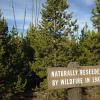
This event was designed to create dialogue among scientists and managers and to put fire ecology research in the context of real-life limitations and situations that influence decision making and planning. Discussion topics included: Fire…
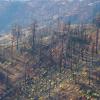
Following the 2005 School Fire that burned about 50,000 acres of forests and grasslands on the Umatilla National Forest, Washington, managers wanted to limit weed spread and soil erosion in severely burned areas. Various mulch treatments (wheat…
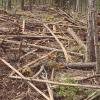
Wildland fuels may be the most important consideration in fire management, not just because they are important inputs for predicting fire behavior (i.e., how fast and intense a fire gets), but also because fuels are the only factor that can…
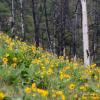
Over the past several decades, increases in area burned in the western U.S. have caused considerable concern about forest resilience following large wildfires. This concern is especially pronounced in dry mixed-conifer forests, where the combined…
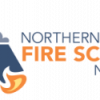
The kickoff topic for this Network of Fire Science Champions call was "Ushering in a New Age of Wildland Fuel Science" presented by Bob Keane, Research Ecologist, Missoula Fire Sciences Lab. Bob talked about his new book, Wildland Fuels…